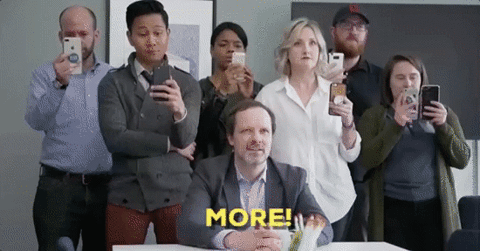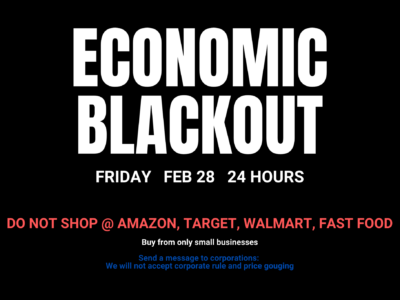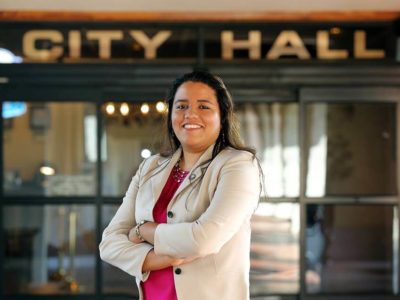You pull up to Chevron, just like normal, but gas went up 20 cents. Say what now? What madness is this? You’re saving the world! In this hypothetical world, the government finally agreed on the most popular measure for carbon taxes—a tax on consumption. The tax takes into account the social and economic costs, then dishes out a broad tax on products that releases carbon emissions. Legislators around the U.S. implement taxes and laws all the time, but they hear carbon tax and all hell breaks loose.
So, why all the fuss about a carbon tax and what can you do?
Back in the Real World—What is Currently Happening?

Everybody sees it differently. The stable middle-class of cities and liberal hubs overwhelmingly support a carbon tax. The struggling, blue-collar working-class of rural America and conservative hubs reject anything that could damage their economic safety and familial stability. These strikingly different values make the conversation much harder, often ending in partisan stand-offs.
U.S. Representatives and Senators have been working to get a bill passed. For example, prominent U.S. Senator Ron Wyden has 23 cosponsors on his Clean Energy for America Act. It amends the IRS to allow for companies and civilians to receive tax redemptions in the face of a carbon tax. Americans get more money in their pocket, and lower emissions.
U.S. Representative John Delaney proposed a Tax Pollution Not Profits Act. It includes the option for businesses to receive refunds with the implementation of Carbon capture machines. It creates a low-income energy cost mitigation program for low- and middle-income Americans. And it even provides revenue funds generated from the bill to “assist displaced workers in the coal industry.” #BestOfBothWorlds? Apparently not, since neither bill has become law.
What Can You Do about Carbon Tax?

I wish I was just on a soap box, preaching some ridiculous philosophy. But the truth is, everybody agrees that this problem cannot go away. “If the projections were somehow to turn out to be wrong, we would have to question the very theories of physics that underlie our modern technology and our modern understanding of the everyday world around us,” said University of California, Berkeley Professor John Harte, who studies ecosystem sciences. Maybe you’re wondering, “But what if I’m poor, and I can’t afford 30 cents more?” Well, broke college kids, don’t worry—you can do something.
We need to think about how we can create a carbon-free and earth-friendly culture. That starts with our diet and day-to-day activities. Fun fact: Billions of people in impoverished communities burn biomass to cook food, creating black carbon (think carbon dioxide x100 in potency). However, college students’ lifestyles create an infinitely-larger carbon footprint.
From not wasting food to eating the right food, diet remains the most important way to reduce carbon dioxide emissions. What do I mean? Stop eating beef, please. The amount of water produced by a pound of beef is staggering. “Students may try to reduce their shower time by three minutes, but if they stopped eating a pound of beef, that would be the equivalent of the entire month,” said UC Irvine Professor Jessica Pratt, who studies Ecology and Evolutionary Biology. You heard that right. You can save the ozone from carbon emissions and be a #FabFitGoddess while doing it.
The beef industry stands in the middle of the problem, too. Cows emit massive levels of methane that cannot be taxed under a carbon tax (I mean, that wouldn’t be carbon, right?). Methane molecules trap heat 100 times more potently than carbon dioxide. Also, according to Professor Pratt, vegetable products impact the environment five times less than meat products, try a vegetable stir fry instead of a meat one. You may feel less full, but that means reduced food waste—the average person wastes over 400 pounds of waste a year.
For a lot of people, this seems difficult, even if it seems pretty reasonable and long-term. The benefits from cutting out beef would reduce food waste and water waste. When you start, you become part of a culture, and this culture can spread, ensuring long-term, positive effects.
Want to Do More about Carbon Tax?

Climate change should concern everybody. This issue cannot remain partisan; climate does not see blue states, nor red states, nor the United States. Climate change effects every state. The Citizens Climate Lobby realizes this. They have 370 chapters around the U.S. and 425 worldwide. They also have one in nearly every congressional district, and no citizen is ever more than 30 minutes from a chapter.
Citizens Climate Lobby helps bridge the partisan gap, and it enables students to make an enormous impact. They started the 2016 Bipartisan Climate Solutions Caucus in the House of Representatives. This serves as a bipartisan climate change effort started by Republican Carlos Curbelo and Democrat Ted Deutch, both of South Florida, where climate change is literally washing away cities.
The Citizens Climate Lobby supports the Carbon Fee and Dividend, which puts a steadily rising fee on CO2 content in fossil fuels. The revenue from that fee goes back to households. “We know that putting a price on carbon is the way to increase energy costs, and we don’t want this to be a drag on the economy or hurt Americans economically,” said Steve Valk, Director of Communications at the Citizens Climate Lobby.
Beyond that, it also starts with contacting your representatives. “When we train our volunteers, we tell them that we don’t have a lot of rules, but the only thing that we’re going to tell you is that when you communicate with a member of Congress or their staff, you do it with an attitude of respect and admiration for the person that you’re talking to,” said Valk. Compliment something they did, and they become more open to the conversation. You’ll usually find something to agree on; bipartisanship allows people to come together.
The Carbon Tax Takeaway

Number one, change your lifestyle, just a little bit. Eat less beef, eat more veggies (your mom was right) and waste less food. Stop setting that shower timer (you know you just turn it off anyway). Bring the conversation to the table: Do not make climate change a partisan issue. Educate, motivate and activate: Informed citizens become motivated and make active change in their communities. When enough people support these policies, Congressmen notice and your work becomes law. Now go out there and #CrushIt.



















